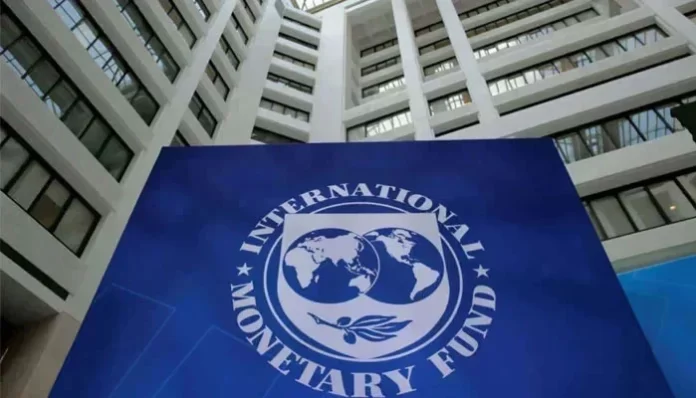With the completion of the second review under the Stand-By Arrangement (SBA) for Pakistan on Monday, the International Monetary Fund (IMF) Executive Board cleared the way for an immediate transfer of about $1.1 billion, increasing the total amount disbursed under the arrangement to around $3 billion.
The State Bank of Pakistan’s (SBP) reserves will approach the $9 billion threshold as a result of the cash influx. The SBP’s foreign exchange reserves were valued at $7.981 billion as of April 19.
The lender said in a statement that Pakistan’s nine-month SBA, which was authorised by the Executive Board on July 12, 2023, effectively offered a framework for financial support from both bilateral and multilateral partners as well as a policy anchor to address imbalances both domestically and internationally.

The programme’s main objectives were to: (i) maintain debt sustainability through FY24 budget implementation and necessary fiscal adjustments; (ii) safeguard important social spending; (iii) buffer external shocks and end foreign exchange shortages by restoring proper FX market functioning; (iv) advance disinflation by maintaining a strict monetary policy; and (v) advance structural reforms, with a focus on the viability of the energy sector, SOE governance, and climate resilience.
It claimed that during the programme, macroeconomic conditions had improved. With the ongoing recovery in the second half of the fiscal year, growth of two percent is anticipated in FY24. With a primary surplus of 1.8 percent of GDP in the first half of fiscal year 2024—well ahead of predictions and putting Pakistan on track to meet its goal primary surplus of 0.4 percent of GDP by the conclusion of FY24—the fiscal situation is continuing to strengthen. Though still high, inflation is still falling, and should sufficiently tight, data-driven monetary policy be sustained, it should hit about 20 percent by the end of June.
In the medium run, the economy should continue to rise and inflation should revert to the SBP’s objective, assuming that prudent policies and reform initiatives are maintained. Since the programme’s inception, gross reserves have grown to over $8 billion, up from $4.5 billion, and are expected to continue to be rebuilt over the medium term.
Antoinette Sayeh, Deputy Managing Director and Chair, released the following statement after the Executive Board meeting:
Pakistan has made headway in restoring economic stability as a result of its committed policy initiatives under the 2023 Stand-By Arrangement (SBA). External pressures have lessened, moderate growth has resumed, and inflation, though still high, is starting to drop. Pakistan should make the most of its hard-won stability and continue to implement good macroeconomic policies and structural reforms to achieve stronger, inclusive, and sustainable growth, even in light of the enormous difficulties that lie ahead. Maintaining outside assistance will also be essential.
The government’s income performance in the first half of FY2024 was in line with programme expectations, and this was made possible by restrictions in federal expenditure as well. To guarantee that the main surplus objective is met, ongoing revenue mobilisation initiatives and spending restraint at the federal and provincial levels are essential. Maintaining fiscal sustainability and creating more room for social and development expenditure after FY2024 would require increasing revenue mobilisation, particularly from non-filers and undertaxed industries, as well as strengthening public financial management.
“Over the course of the SBA, the authorities have stabilised the circular debt of the energy sector through timely tariff adjustments and improved collection efforts.” In addition to continuing these measures, the government must implement cost-side changes to address the fundamental problems and sustainability of the industry.
“Tight monetary policy guidelines maintained by the State Bank of Pakistan are acceptable until inflation rates stabilise. Enhancements to the foreign exchange (FX) market’s operation, in conjunction with an exchange rate set by the market, will serve as a buffer against external shocks and draw in funding, promoting growth and competitiveness. It is necessary to keep up the substantial rebuilding of FX reserves under the SBA. To further maintain financial stability, more aggressive measures to address undercapitalized financial institutions and heightened oversight of the financial industry are required.
“Strong, long-term inclusive growth and job creation necessitate continuing to protect the most vulnerable through an adequately funded Benazir Income Support Programme and accelerating structural reforms.” The reform of state-owned companies (SOEs) should be advanced, with a focus on ensuring that all SOEs are subject to the new policy framework. Governance and anti-corruption institutions should be strengthened, and climate resilience should be continued.










